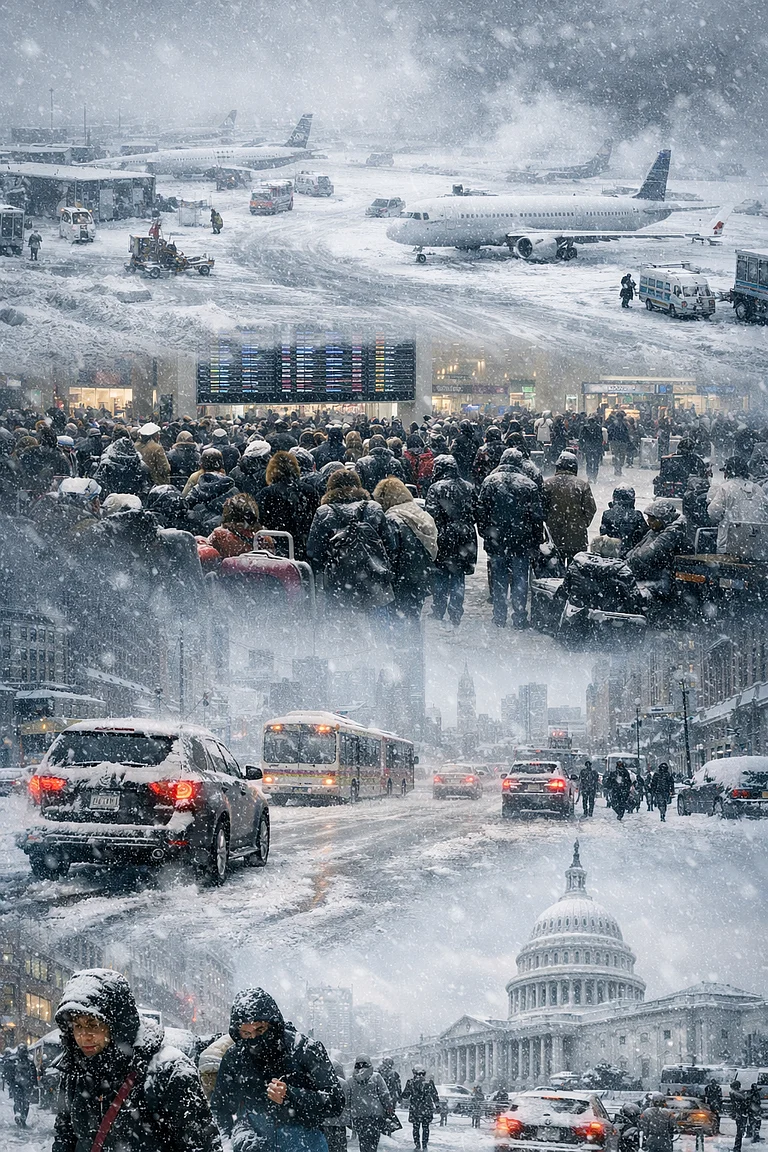Winters are cold, but in Delhi they make one shudder for another reason. The smog, which throws India’s climate agenda up into a nebulous cloud. Add to that the annual COP event, where conversations around Climate Action, become more ubiquitous and intellectual, but sometimes difficult to trust. Add to this the fact, that this year’s COP is in Baku, Azerbaijan, whose more than 90 per cent of exports come from fossil fuels. It sounds contradictory and confusing!
Every year climate crisis becomes more accentuated than the previous year. Morality, Mistrust, Anxiety, Anger, Passion sets in. The recent statement from the UN climate chief, highlighting our limited time to act, “2 years to save the planet” exacerbates feelings of doom and anxiety in one and all.
It has made me, and I am sure you too - very anxious! What will happen? Who is responsible? What can I do?
Climate change is undeniably a complex, multifaceted issue requiring systemic change at multiple levels of society. The far-reaching impacts extend to our natural environment, economies, and social structures. Although large-scale policy shifts, sustainable technologies, and cultural changes are vital, individual actions play a crucial role in anchoring us forward, amidst the anxiety. Who, if not every person on this planet, can rise to the challenge and make a difference in the limited time we have left?
It is essential to acknowledge the emotional toll that climate anxiety can take on individuals. The weight of the crisis can be overwhelming but finding a balance between individual and systemic action is key. Climate anxiety can manifest differently in different people, depending on their circumstances, experiences, and exposure to the impacts of climate change. Some may feel a sense of helplessness or despair, while others may channel their concern into motivation for action. It's important to recognise that there is no one-size-fits-all approach to managing climate anxiety or initiating climate action. Instead, we must acknowledge our common but differentiated responsibilities, recognising that while everyone must contribute to climate action, individuals have varying capacities and opportunities to do so. This allows us to promote a more inclusive and effective response to the climate crisis.
For vulnerable sections of society and those directly impacted by climate change, the anxiety experienced can be even more acute. After all, more than 80 per cent of India’s people live in districts that are at risk of climate-induced disasters. Communities that rely heavily on agriculture, fishing, or other climate-sensitive industries face immediate threats to their livelihoods. Further, climate change may push 17 million people in India towards hunger by 2030, as per The Global Food Policy Report 2022, due to a decline in agricultural production and disruption in the food supply chain, the highest among all countries. Coastal regions are increasingly at risk from rising sea levels and severe weather events, displacing people from their homes. Low-income communities often have fewer resources to adapt to or recover from climate-related disasters, making them more susceptible to health risks and economic hardships. Recognising these challenges, it's essential that we work toward climate justice and create more equitable and resilient solutions for all.
Turning to you and me, readers, who may be relatively privileged, small changes in our daily lives, such as reducing energy consumption, choosing sustainable transportation, reducing waste, supporting renewable energy initiatives, and supporting local, eco-friendly businesses, can make a significant impact when practiced collectively. Eventually then moving toward building community and engaging in open conversations about climate change can inspire collective action and offer support. When we act in our own circles, we create a ripple effect, motivating others to adopt sustainable practices. Further, advocacy and citizen activism allow us to raise our voices and push for stronger environmental policies at local, national, and international levels. Fridays for Future, anyone?
As cold and smoggy days approach us, trains and flights start to get delayed, GRAP rules limit our movement and activities, and another COP ends, we must acknowledge our shared responsibilities to protect the planet and secure a sustainable future. WE must hold our governments, employers, neighbours, friends and families, and most importantly self, accountable. Further, modularising climate action allows us to focus on different aspects of the challenge while working toward a common goal. Whether supporting local initiatives, advocating for policy change, or making sustainable choices in daily life, every effort contributes to the bigger picture. Maintaining motivation involves setting realistic goals, celebrating small victories, and finding support in communities of like-minded individuals.
Let's focus on our strengths and remain united in our ultimate goal: a sustainable future for all. Together, we can create the change we wish to see in the world.
So today, I have high levels of Climate Anxiety but am also committed to the Climate Action. My Own Actions!
(Jain is Managing Director, Primus Partners. Views expressed are personal)






























